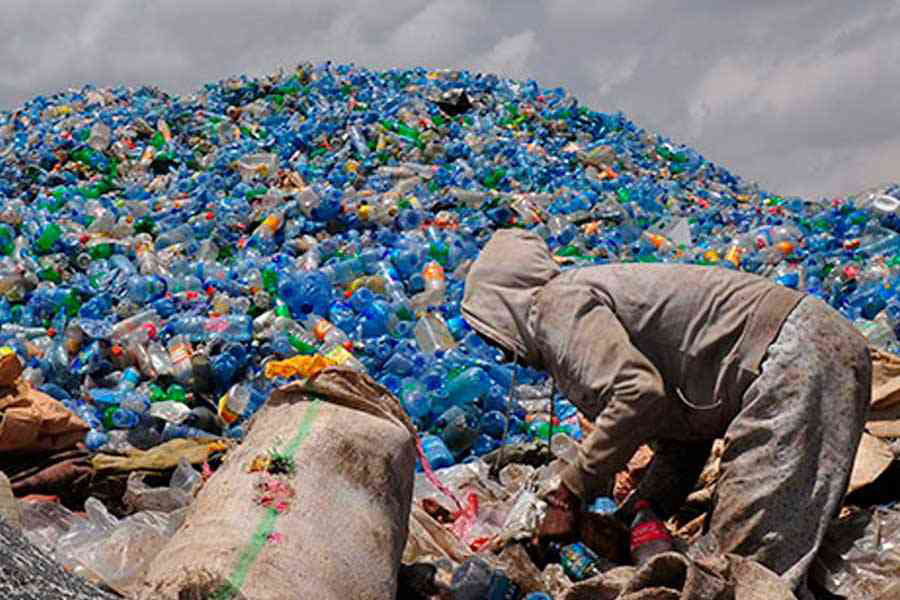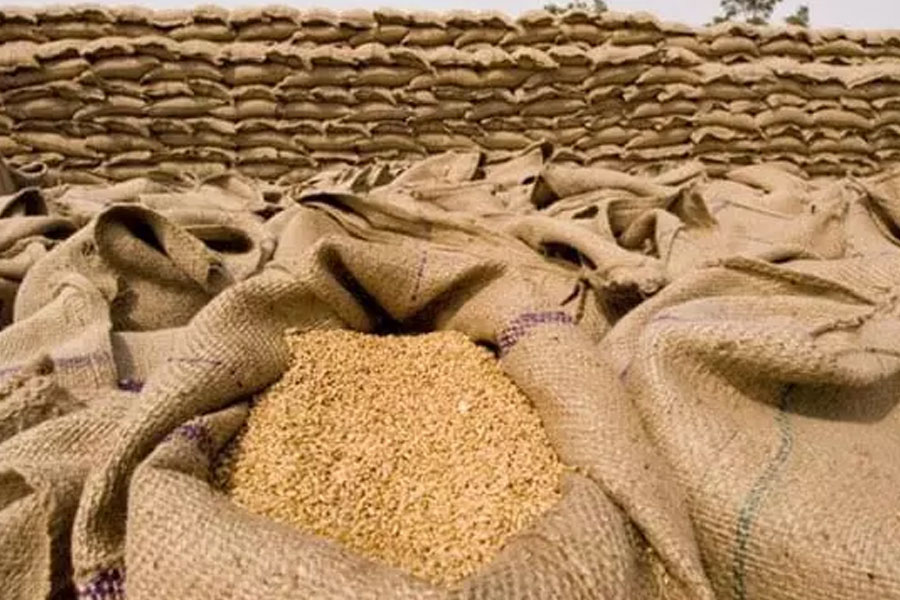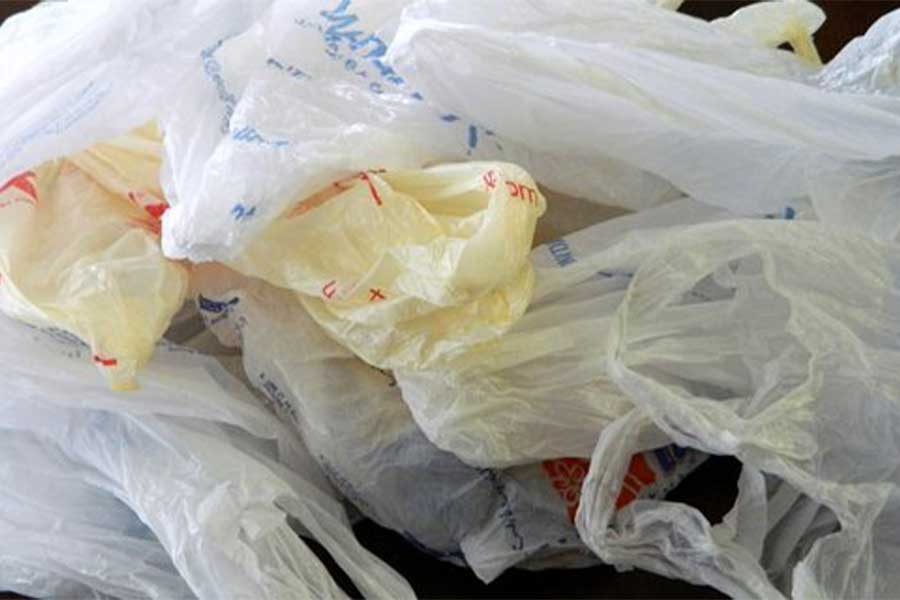
Jun 1 , 2019
By Haimanot Tefera
To the average observer in Ethiopia, the menace of plastic bags is quite evident. Plastic bags, in all their colours, line the streets and pile up in open spaces. They block drainage systems, cause floods and damage infrastructure. Worldwide, plastic bags are in the top five items found in river and beach clean ups. They’re not just found in our streets and rivers but in land and sea animals alike. In Kenya (and I’d guess in Ethiopia too) plastic bags have been found in the cattle and gazelles.
With this year’s Environmental Day on June 5 centered on air pollution, it is also impossible to neglect the extremely harmful effects that burning plastic has on our health. Worldwide, between 10pc – 20pc of all municipal solid waste consists of plastic, and approximately 40pc of the world’s garbage is being burned. The burning of plastics releases toxic gases like dioxins, furans, mercury and polychlorinated biphenyls (better known as BCPs) into the atmosphere and poses a threat to vegetation, human and animal health. Plastic is, therefore, a major source of air pollution.
Dioxins settle on crops and in our water, where they eventually enter our food and thus our bodies. These dioxins are potentially lethal, persistent organic pollutants that can cause cancer and disrupt thyroid and respiratory systems. Phthalates, the very chemicals that give plastic their desirable qualities—flexibility and softness—are associated with a plethora of health problems, from fertility issues and birth defects to allergies and asthma.
The burning of plastic waste increases the risk of heart disease, lung problems such as asthma and emphysema and causes rashes, nausea, headaches, damage to the nervous system – quite a sobering thought to have while walking past a steaming heap of burning waste in quiet residential backstreets. Burning plastic also releases black carbon, which contributes to climate change. How is something designed to last only a few minutes wreaking so much havoc?
Funnily enough, polyethylene, the most commonly used plastic, was created by accident in 1933. Plastic bags as we know them were born in the post-World War II explosion of manufactured household goods and became popular in the 1970s. By the end of the 1990s, grocery stores worldwide had switched from paper to plastic. The golden age of plastic had begun. It only took four decades for plastic bags to make the transition from technological marvel to environmental and health menace.
In Ethiopia, our love of plastic sees grocery store attendants and fruit sellers encasing every item in a different plastic bag – sometimes even two or three. Awareness of the dangers of plastic pollution in our environment is low. It is estimated that around 50pc of waste in Ethiopia does not make it to designated landfills, but even if it did, it would not be managed effectively. Ethiopia currently has no sanitary landfills.
Open dump sites leach toxic runoff into the soil and water. Safety standards are not upheld for those whose livelihoods depend on the waste, and horrendous odours disturb all who live nearby. These dump sites would ideally be closed and rehabilitated after reaching their capacity. Plastics severely limit the capacities of these dump sites in Ethiopia and increase the cost of any rehabilitation ideas. Although the Solid Waste Management Proclamation 513-2007 bans the use, manufacture or importation of plastic bags with a thickness under 0.33mm, anyone who has been grocery shopping in Ethiopia can see that the ban has not been enforced.
The country is a major importer of raw plastic materials (mostly oil by-products from the Middle East) and has seen an increased use per person over the last few years. With a growing economy and an exploding population, this trend is set to sharply rise. But all is not lost! As environmental activists like Greta Thunberg, Alexandria Ocasio-Cortez and the thousands of young schoolchildren who have walked out of class in protests about climate change have shown the world – the youth are not about to accept inaction on environmental degradation at the hands of humans.
In Kenya, 36-year-old James Wakibia, was the face of the social media campaign that prompted the ban on plastic bags in 2017 – one of the world’s harshest and hardest bans with penalties such as 4 years in prison or a fine of 40,000 dollars. Just this year, New York State imposed a ban on plastic bags, joining an ever-growing list of countries and cities that have outlawed the sacks of doom. Globally, plastic bags are now banned in 32 countries. Surprisingly, Africa is leading the way, with an impressive 18 countries refusing to use, produce or import polyethylene bags. Ethiopia’s neighbours in the region – Kenya, Tanzania, Rwanda and Eritrea – have all made a firm stand.
However, critics of the plastic ban cite that not everything is as straightforward as it seems. Wakibia himself admits that the Kenyan ban is not without its flaws and that a more encompassing ban for more durable plastics is necessary. Other bans for certain items, such as plastic used to wrap meat and fresh foods, were also eventually exempted from the ban. Studies in California have also found that plastic bag bans do not totally eliminate the single usage of plastic but that users then tend to buy the legal, thicker plastic bags to replace the thin ones. Regardless of these findings, both Kenya and California have seen dramatic reductions in plastic bag use and waste.
Kigali was even named the cleanest city in Africa, having banned non-biodegradable plastic bags over a decade ago. “The main point, frankly, is to communicate to policymakers, the public, and to the industry that we’ve got to do something serious to reduce plastic packaging, and if you all can’t figure out how to do it, we’re going to start banning your products one at a time,” Mark Murray, executive director of Californians Against Waste, said.
The instinctual reaction is to pivot to paper bags as a replacement for plastic. The situation, unfortunately, is not that simple. Studies have shown that paper bags have a higher environmental footprint than plastic. They require cutting down and processing trees, which involves a lot of water, toxic chemicals, fuel and heavy machinery. While paper is biodegradable and avoids many of the problems of plastic, the huge increase of paper bag usage may increase greenhouse gas emissions.
Regardless, banning plastic bags reduces non-biodegradable waste in landfills, and in the Ethiopian context, the toxicity of air pollution from the burning of waste, contributes to national health and wellbeing. Studies in the United Kingdom have found that the greatest environmental impacts would be achieved through a reduction in both plastic and paper use. The State of New York is now experimenting with additional paper taxes to limit the flow of waste on the state’s streets and rivers but also to minimize the greenhouse emissions caused by their production.
Although taxes have been shown to have significant effects in Western countries, as Wakibia explains, “The ban had to be drastic and harsh, otherwise Kenyans would have ignored it.” This is certainly an unfortunate trait we share with our neighbours. It is therefore not unrealistic to predict a second wave of paper bag bans in the near future. At this point, those who understand the issue may feel despondent. We will always need a way to carry things from one place to another. However, if paper means cutting down more trees, and plastic is a source of cancer when burned, what can we use?
The truth is that everything we do has an environmental footprint, but some alternatives are much more preferable if humans want to live in harmony with Mother Earth.
The plastics industry would have us believe that recycling is the best option – but even Western countries have struggled to manage their plastic waste. Thin plastic films have been known to damage recycling machinery and many western nations outsource their waste to poorer Asian nations – essentially using them as landfills.
However, there are some good alternatives for carrying our goods. The best option would be Jute or Hessian bags (used in the export of coffee beans). These are made from durable and naturally biodegradable vegetable fibers. Jute actually sequesters carbon contributing to CO2 emission reductions. These bags can be recycled in compost or with other textiles. Cotton cloth bags are also washable, biodegradable and even recyclable in the form of compost. However, as cotton has a large water footprint, you can make sure that you reuse the bags for as long as possible or, even better, source a bag made of recycled cotton.
The Habesha way would, of course, be to get yourself a basket. The hand-woven “zembil” bags are made to last, are biodegradable and will protect your eggs and yoghurt even when travelling on a bumpy road. Perhaps the solution was with us the whole time.
The youth of Ethiopia need to unite against the plight of plastic bags in our society. Sure, we have jobs to worry about (or the lack thereof), education, wages, politics and even football on our minds, but our environment is something that is quietly affecting our day-to-day lives. We cannot afford to let our environment take the back burner.
If the government, with all its strategies, is as green as it wishes the world to think, it will support a complete plastic bag ban and the creation of a local market to fill that gap.
PUBLISHED ON
Jun 01,2019 [ VOL
20 , NO
996]


In-Picture | Jun 08,2019

Fortune News | Mar 30,2024

Radar | Jun 07,2020

Life Matters | May 09,2020

Fortune News | Jun 23,2019

Radar | Mar 26,2022

Fortune News | May 15,2021

Radar | Jul 30,2022

Fortune News | Jan 18,2020

Radar | Jan 18,2020

My Opinion | 131451 Views | Aug 14,2021

My Opinion | 127803 Views | Aug 21,2021

My Opinion | 125784 Views | Sep 10,2021

My Opinion | 123419 Views | Aug 07,2021

Dec 22 , 2024 . By TIZITA SHEWAFERAW
Charged with transforming colossal state-owned enterprises into modern and competitiv...

Aug 18 , 2024 . By AKSAH ITALO
Although predictable Yonas Zerihun's job in the ride-hailing service is not immune to...

Jul 28 , 2024 . By TIZITA SHEWAFERAW
Unhabitual, perhaps too many, Samuel Gebreyohannes, 38, used to occasionally enjoy a couple of beers at breakfast. However, he recently swit...

Jul 13 , 2024 . By AKSAH ITALO
Investors who rely on tractors, trucks, and field vehicles for commuting, transporting commodities, and f...

Jun 28 , 2025
Meseret Damtie, the assertive auditor general, has never been shy about naming names...

Jun 21 , 2025
A well-worn adage says, “Budget is not destiny, but it is direction.” Examining t...

Jun 14 , 2025
Yet again, the Horn of Africa is bracing for trouble. A region already frayed by wars...

Jun 7 , 2025
Few promises shine brighter in Addis Abeba than the pledge of a roof for every family...

Jun 29 , 2025
Addis Abeba's first rains have coincided with a sweeping rise in private school tuition, prompting the city's education...

Jun 29 , 2025 . By BEZAWIT HULUAGER
Central Bank Governor Mamo Mihretu claimed a bold reconfiguration of monetary policy...

Jun 29 , 2025 . By BEZAWIT HULUAGER
The federal government is betting on a sweeping overhaul of the driver licensing regi...

Jun 29 , 2025 . By NAHOM AYELE
Gadaa Bank has listed 1.2 million shares on the Ethiopian Securities Exchange (ESX),...